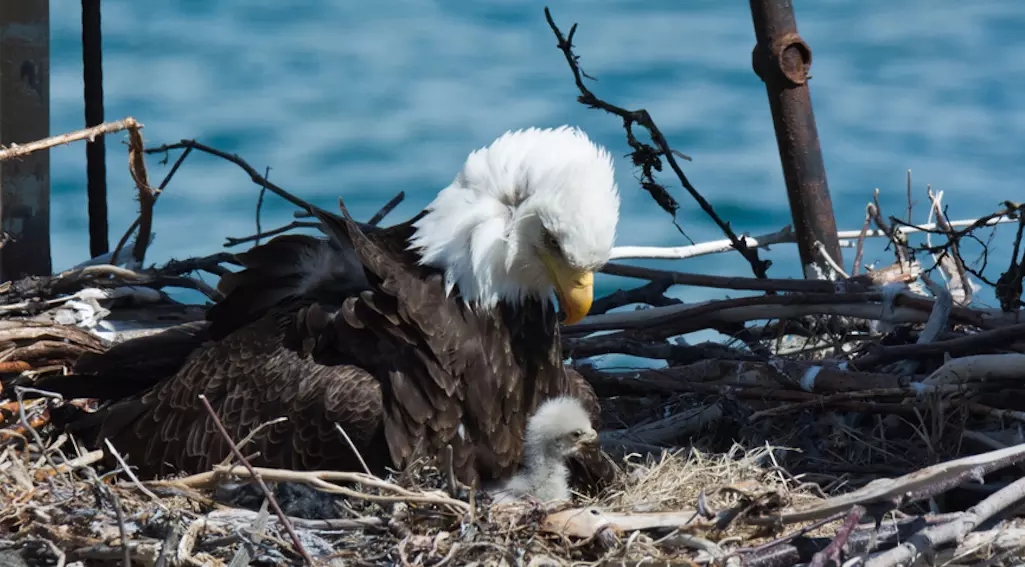More than 100 species are victims of plumbism, as are hunting families
WASHINGTON D.C. — U.S. Rep. Ted Lieu (D-Calif.) reintroduced the Lead Endangers Animals Daily (LEAD) Act, H.R. 6268, to direct the U.S. Fish and Wildlife Service (FWS) to phase out lead ammunition and lead fishing tackle on the country’s 573 National Wildlife Refuges.
“No responsible hunter or hunting organization can lay claim to the designation of ‘conservationist’ if knowingly dispersing lead in the environment and incidentally poisoning wild animals up and down the food chain,” said Wayne Pacelle, president of Animal Wellness Action and the Center for a Humane Economy.
“We know that the federal ban on lead ammunition is perhaps the greatest conservation and animal welfare success stories of 20th century wildlife management,” added Pacelle. “Making the switch to widely available non-toxic ammo on national wildlife refuges and halting the random killing of wildlife is an easy call for anybody or any agency with a wildlife ethic.”
- Over 500 studies are definitive in documenting risk to 134 species (including humans), according to the National Park Service. Animals consume spent lead ammunition or fishing tackle by foraging from the ground, feeding on the remains of lead-contaminated carcasses, or ingesting lead sinkers and jigs.
- A 2022 study in Science examined 1,210 bald and golden eagles across 38 states and found that nearly half of them had “bone lead concentrations above thresholds for chronic poisoning.” Wildlife rehabilitation facilities take in an unyielding stream of lead-poisoned hawks, ravens, owls, turkey vultures, and mourning doves.
- Fragments of lead are nearly impossible to remove from meat, even with professional processing. One study showed “all [deer] carcasses showed metal fragments” with risk to “ten million hunters, their families, and low-income beneficiaries of venison.” Hunting writer Ted Williams noted in the outdoor publication Hatch, two “health departments impounded 17,000 pounds of donated, lead-impregnated venison.”

In a 2023 final rule relating to hunting on wildlife refuges, the FWS determined that “lead ammunition, including bonded lead ammunition, fragments when it hits an animal, and this distributes tiny pieces of lead within a wide radius in the soft tissues of the harvested animal… These tiny fragments of lead are then consumed by humans eating the game meat and scavenger species eating carcasses or gut piles left behind. In this tiny, fragmented form and acted on by digestive enzymes and acids, the lead derived from ammunition can then shed particles that enter the bloodstream and affect systems throughout the body, presenting both chronic and acute health risks.”
“The use of lead ammunition continues to pose a serious threat to the health and safety of both humans and wildlife,” observed Rep. Lieu, an Air Force veteran. “Lead ammunition can leave toxic fragments in animal remains and poison other animals. Birds like California condors and bald eagles are at significant risk of lead poisoning because they often feed on animals killed by lead bullets, as are dairy and beef cattle that graze in areas contaminated by spent ammunition.”
Despite the agency’s finding that lead ammunition is problem for wildlife and for hunters consuming wild game, the agency proposed a phase-out of lead ammunition on just seven national refuges. “What an embarrassment for the agency to act with such timidity, allowing lead poisoning to continue to cause agonizing, random deaths of wildlife on hundreds of so-called ‘refuges,’” noted Pacelle.
According to one peer-reviewed study published in 2022 in the Proceedings of the National Academy of Sciences, exposure to leaded gasoline lowered the IQ of about half the population of the United States, focusing on people born before 1996 — the year the U.S. banned gas containing lead.
“Within the brain, lead-induced damage. . .can lead to a variety of neurological disorders, such as brain damage, mental retardation, behavioral problems, nerve damage, and possibly Alzheimer’s disease, Parkinson’s disease, and schizophrenia,” according to the National Institutes of Health.
H.R. 6268 is cosponsored by Rep. Nanette Diaz Barragán (D‑Calif.), Rep. Julia Brownley (D‑Calif.), Rep. Betty McCollum (D‑Minn.), and Del. Eleanor Holmes Norton (D‑D.C.) and has drawn support from more than 190 organizations in the wildlife, birding, and conservation groups, including the American Bird Conservancy, Audubon Dakota, Audubon Delaware, Audubon Iowa, Audubon Minnesota, Audubon Missouri, and Audubon Southwest.

